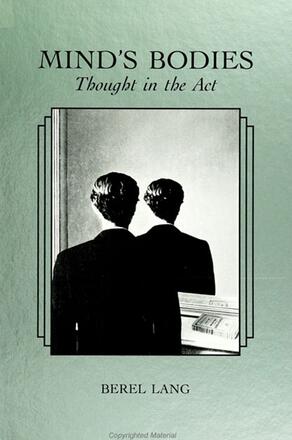
Mind's Bodies
Thought in the Act
Alternative formats available from:
Subverting the boundaries between philosophy and literature, this book addresses such topics as aesthetics, criticism, epistemology, and ethics and social theory.
Description
Mind's Bodies: Thought in the Act both marks and subverts the boundaries between philosophy and literature. On the analogy of the body-mind relation, Lang argues for the textual character of philosophical writing, addressing as grounds for that claim topics in aesthetics, criticism, ethics and social theory, and epistemology.
Berel Lang is Professor of Philosophy and Humanistic Studies, State University of New York at Albany.
Reviews
"I like the book's idiosyncratic perspectives; its brilliance, its originality. The prose is burnished, the ideas arresting. Philosophy as literature (currently a rara avis!)" -- Cynthia Ozick
"Lang has found a way to make us, for a time, philosophers despite ourselves by presenting a novelist's imagination in philosophical clothing. Nothing sheepish, however, about his often cruelly precise observations. They summon us to imagine more fully (i.e. carnally) and then to think more consequently (i.e. like Kafka or Wittgenstein). These extended aphorisms, little essays really, begin casually enough from any subject--reading, walking, voyeurism, death--but develop in startling ways. They almost convince us that self-consciousness is a good thing and that logic can be made reader-friendly." -- Geoffrey Hartman, Yale University